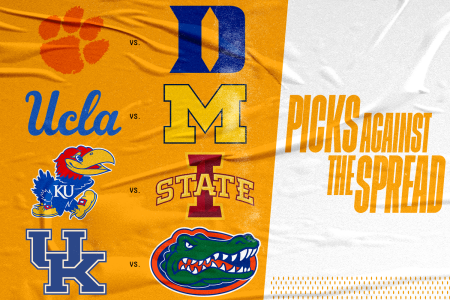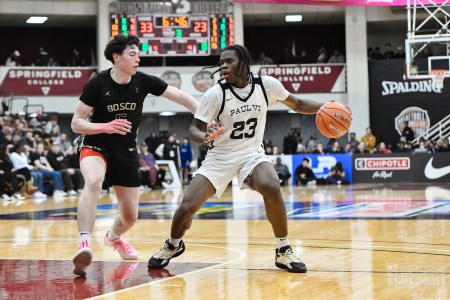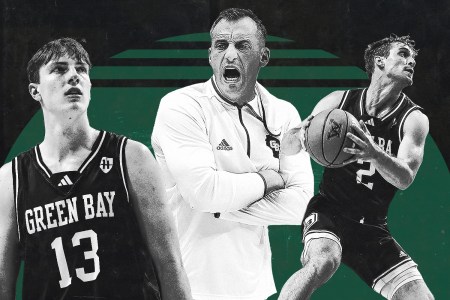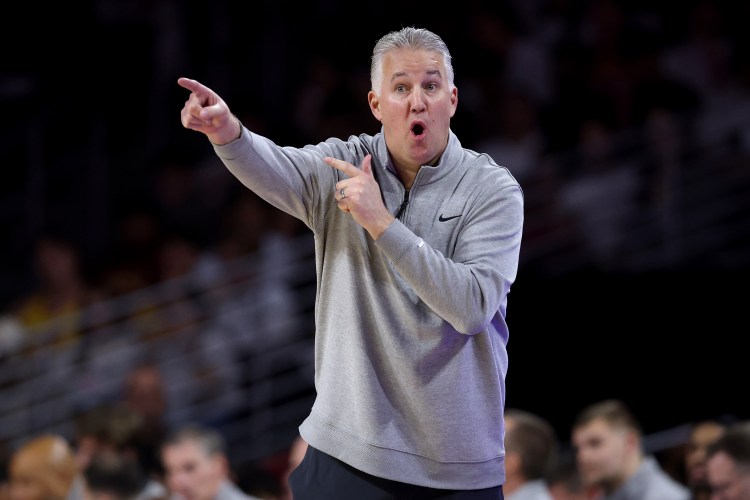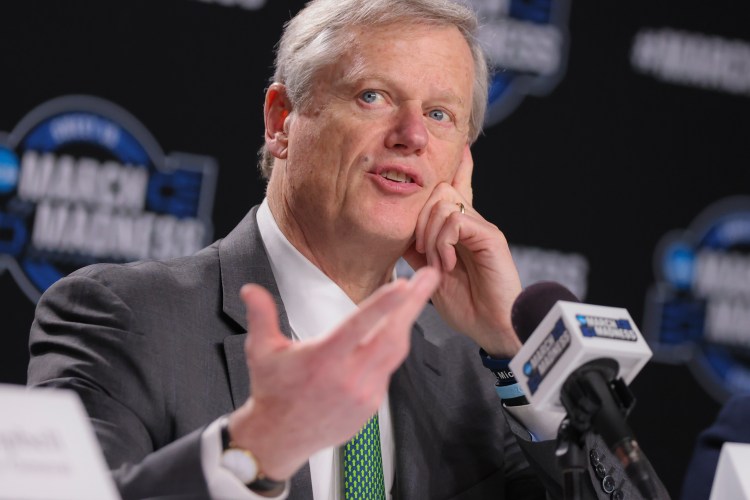Editor’s Note: After more than 20 years as a television and radio broadcaster, Doug Gottlieb, a former point guard at Oklahoma State, has taken his first college coaching job as the head coach at Green Bay. Gottlieb is coaching the Phoenix while also continuing his duties as a Fox Sports Radio host. Gottlieb is writing a recurring journal for Hoops HQ . This is his sixth installment; click here to read all of them.
Hello again, Hoops HQ subscribers. We’ve got a lot to catch up on. The last few months have been a whirlwind. We played in some dramatic games, conducted our exit interviews and started building our roster for next year. We even signed LeBron! But before we get into that, I want to start with a few words about the end of the 2024-25 season.
It’s always the same feeling, no matter if you’re a broadcaster, coach or player. The season is really long and then it ends really abruptly. Like, wait, we don’t have practice tomorrow? There are no more games? No more road trips?
We beat Detroit Mercy in late February, then played incredibly well for about 38 minutes against Oakland on March 1. At some point, they had to switch to a man-to-man because they couldn’t stop us in their patented match-up zone. We were up 14 in the second half and five with 18 seconds to go, but we couldn’t close it out, eventually losing in overtime. Afterwards, Greg Kampe approached me and said, “I just want you to know, I haven’t played man-to-man in over 10 years. You guys are doing a hell of a job.”
We wound up playing Oakland again three days later in the first round of the Horizon League Tournament. My starting point guard, junior Preston Ruedinger, was out with a torn oblique muscle. Our leading scorer Anthony Roy was a few days away from returning. I felt that if we could pull out the game, we might be able to get healthy and make a run. Despite our poor record, we were so full of hope.
Unfortunately, it didn’t turn out the way we wanted. We didn’t play well and got blown out to conclude the year. Still, there was belief and fight until the very end and I’m proud of our guys for that.
In today’s college basketball world, the focus must shift to next season immediately. In fact, with no general manager, our coaching staff had been game-planning for the offseason long before it arrived. We prepared a strategy based on who we anticipated would hit the transfer portal. During the middle of the season, I even sent two of my assistants on the road for three weeks to watch all of the best junior college players in the country.
First, we had to do exit interviews and figure out which of our players would be staying in Green Bay. With certain guys, like Anthony Roy, you know they’re leaving and the meetings are quite short. I actually advised Ant throughout his transfer process. He ultimately committed to Oklahoma State, my alma mater.
I was bothered by how things transpired with one of our other standout guards, freshman Jeremiah Johnson. I personally recruited Jeremiah last year. He’s a great kid and an extremely talented player from Oklahoma. When the season ended, we sent out the exit interview schedule. I got a text from Jeremiah 30 minutes before we were set to meet. He said that he was going to visit his sick grandmother in the hospital and that he would call me after he left and gathered his head. Of course, I told him that was not a problem. But he never called.
I repeatedly texted him to try to reschedule our meeting, but I heard very little in response. About a week later, his father requested to speak on the phone. We hopped on a call and he explained that, for a number of reasons, Jeremiah wanted to hit the portal. He ended up transferring to Campbell without us ever talking directly. The idea that a player could move on without having an exit interview when there’s zero animus between us strikes me as crazy, but I wish him nothing but the best next season.
Outside of that, I had a couple of kids who were on the fence about returning. My belief is that at a place like Green Bay, we have to lead the league in retention in order to be successful. It’s too expensive to add new players every year and too difficult to build cohesion and culture with heavy roster turnover. Our two top returnees, Preston Ruedinger and sophomore forward Marcus Hall, came into their exit interviews and all they wanted to know was, “What are we going to do to get better?” Preston even declined an NIL raise and told me to use the money to help get other players. Marcus probably could have made more on the open market, but he was just super excited about coming back.
In addition to Preston and Marcus, we retained freshman guards CJ O’Hara and Mac Wrecke, both of whom had significant roles last season, and redshirt forward Caden Wilkins and redshirt guard Bennett Basich. We told all of them the same thing: “Anybody we bring in is going to challenge to start. You’re all going to raise our floor — and then we have to raise our ceiling as well.”
We didn’t look to add a lot of high school kids. It’s just too hard to compete in our league with a young roster. So we got to work in the portal, focusing our recruitment on three major groups: JUCO players, high-level Division II and Division III players and players originally from Wisconsin who might be interested in coming home.
Each player we pursued had to check three additional boxes: 1) They had to be tough, 2) They had to come from a winning program, and 3) They had to fit our culture. We didn’t want guys who routinely miss practice, or smoke weed, or don’t take school seriously. As former Green Bay coach Dick Bennett told me, “the better the kid, the more they’ll improve.” He’s absolutely right.
The first guy we signed was Justin Allen, a 6-foot-4 guard who averaged 25.4 points per game at Division III Carnegie Mellon. A couple DIII coaches I really trust raved about him, and it became clear to our entire staff that he can definitely play at our level. A week later, we landed 6-foot-3 point guard LeBron Thomas, a two-time NJCAA All-American at Vincennes University. LeBron led his team to a 28-5 record and averaged 14.3 points, 5.8 assists and 4.0 rebounds in 2024-25.
Before the end of April, we added two more players via the portal. Rob Stroud, a 6-foot-5 forward, averaged 17.1 points and 7.3 rebounds at Division II Lewis University. Milwaukee native Shelton Williams-Dryden, a 6-foot-6 forward from Division I West Georgia, was one of the best players in the ASUN, posting 17.6 points and 7.5 rebounds per game. All of our commits are versatile. All of them can defend and rebound, which were two of our biggest weaknesses last season. And all of them are at least 21 years old.
So… what did we hit on? We got an awesome DI transfer who wanted to come home to Wisconsin. We got the best available DIII player in the country. We got an older, experienced, tough-as-nails DII player who’s also from just outside Chicago. And we got a JUCO All-American. In terms of the plan, we have executed it to perfection.
We’re not finished yet, but as I finally get a moment to catch my breath and reflect on what we’ve done since mid-March, my excitement for next season is starting to build. We’ve got a lot to do between now and November. I learned a ton in my first year as a Division I head coach. I’m eager to run it back.


